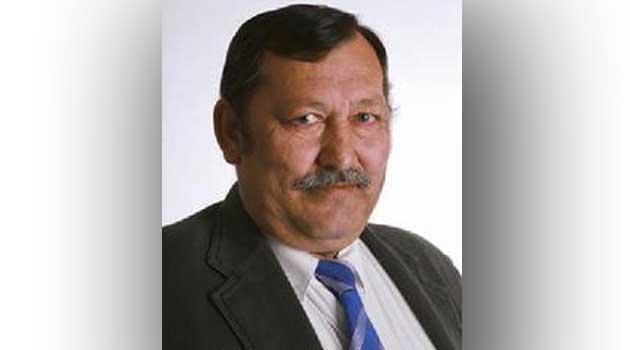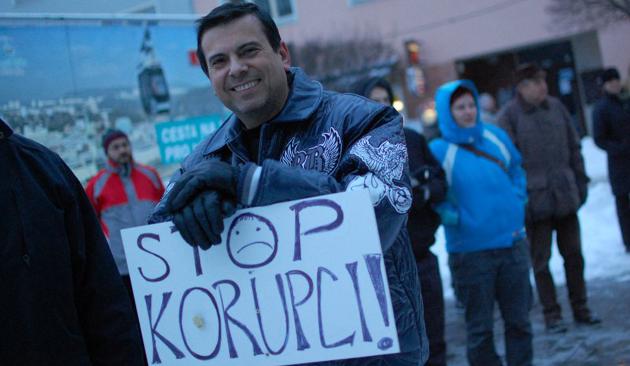Czech regional elections. Romani SocDem candidate Rudolf Polák: Pay must motivate semi-skilled laborers too

On Friday, 7 October and Saturday, 8 October, citizens of the Czech Republic will vote for regional councilors and in some regions also for the one-third of the Czech Senate whose electoral terms are expiring. Political parties have also sent several candidates to the regional elections who are of Romani nationality.
This year, political movements and parties have nominated a total of 11 880 candidates for the post of regional councilor, 576 more than in the 2012 elections. News server Romea.cz estimates that as many as 40 Romani people are running for the regional councils this year, and we have reached out to some of them with a request for an interview.
Candidate for the Czech Social Democratic (ČSSD) Party Rudolf Polák
The last Romani politician who has given us an interview this election week is 65-year-old businessman Rudolf Polák, who is running in the Hradec Králové Region for the ČSSD in 38th place on the list. He has been involved in local politics since the 1990s, chaired the Hradec Králové Regional Assembly’s Human Rights Committee during the electoral period before this last one, and is currently a local councilor in Jaroměř.
Q: Why do you believe Romani people are not interested in voting? Do you encounter vote-buying in your precinct?
A: It’s most probably because they believe nothing will change. They have no faith in politics, they don’t believe their vote will manage to influence anything. There is no vote-buying in Jaroměř, but yes, I believe if I were to say “I’ll give you CZK 500”, people would turn out. However, I stand by the idea that, as Romani people, we must be convinced about what it is we want to achieve, how we want to live. We must come to this on our own, because it’s important to vote for your representatives. If there were more of us Roma in politics, then we would have more power. We see this, for example, in the United States. It’s not that there is no racism there, but they don’t allow themselves to treat Black people as badly as they used to.
Q: Why do you believe it is necessary to have a Romani assembly member in local politics?
A: Romani people should take an interest in politics because it directly affects them. I’ll give you an example. In Jaroměř the local authority chose Romani people to work as crime prevention assistants, unfortunately without my being aware of it, and they chose people who cannot set an example to others, because they don’t even pay their own rent on time, for example. What’s the point of that? Those choices should have been co-decided by somebody who knows the people involved, who knows whether somebody has what it takes or not, whether somebody has the right character and personality. We lose a great deal when we are not the ones making the decisions. A Romani person who has managed to achieve something locally is the one who should co-decide such matters, everybody else should be asking him for his opinion. There are clever people among the Roma, after all. Every minority, every nationality in the world, in Europe, must appreciate those who have that spark, even if just a bit, and they should be sitting in the places where laws and ordinances are approved, such people must be supported.
Q: What is the first thing you would do if you were to become a regional assembly member?
A: I would push for those who are performing community service work to have some kind of prospect of permanent employment. The minimum wage, in my opinion, must be increased. For a long time it has been CZK 8 000 [EUR 300], now it will be CZK 11 000 [EUR 400], but that’s not enough. There has to be motivation for those people who are semi-skilled or unskilled but who work all the same, even if it’s just doing manual labor, that they will not be worse off than those who are on welfare. Politicians should send a clear signal: If you work, you will make more money. How else do you want to encourage Romani children to go get trained for a certain trade? After primary school, Romani children start the apprenticeship track, but they don’t stick it out. I’ll say this openly now: Somebody can get CZK 4 000 [EUR 150] a month in welfare and it’s a side issue to have a qualification, a vocational certificate. It’s short-term thinking, social benefits. It’s not correct that people who do their best, who work, who properly take care of their children, have to be so badly off. If I make my own money, then I can do what I want with it, but if I am getting social benefits for my children, then I can’t go drink up all the money. That bothers me, there must be more monitoring of whether these people have used that money for the purpose for which it was given to them.
Q: You are a successful businessman, how, in your opinion, should the state support employment?
A: The state should support this as much as possible. It’s not that all Czechs are racists, but they just don’t like it when they see Romani people not working, it begins to bother them. If we don’t learn to talk about things as they are, then we won’t just be hated by 90 % of this country, but by 99 %. They’ll keep on saying that we Roma are all the same. Even at the municipal offices, the town halls, they are saying to themselves: “Why should we give commissions to ‘Gypsies’ when the Czechs don’t have work?” However, if it bothers them so much that the Roma are just “vermin” who aren’t doing anything but abusing welfare, then why don’t they give them a chance? If the majority were to give Roma a chance, then they would see that Romani people who want to work, do work. However, then it has to be monitored whether a firm is employing people through a proper contract, and not under the table, whether it has paid its share of the contributions towards health and unemployment insurance and filed tax returns. If so, then give that firm work again, and if not, then publicize that they have not fulfilled their obligations, they haven’t paid into the health and social systems. Nobody should be doing contract work – auditors come to a construction site and find that everybody working there is temporary. Contributions, taxes, nothing is being paid in to the system, I don’t like any of that.
Q: Why did you decide to run for the Regional Assembly of the Hradec Králové Region for the ČSSD?
A: I have been in the ČSSD since the beginning, I joined after the [Velvet] Revolution, because I believe it is correct to aid people who need help, and let’s be honest, many Romani people need assistance. I believe that Romani people should appreicate a party that does its best to do something good for them. In my opinion, it’s significant when politicians come among us like [Czech Prime Minister] Sobotka, [Senate Vice-Chair] Škromach or [South Moravian Regional Governor] Hašek. Romani people should also realize who it is that wants to negotiate with us and who doesn’t.
Q: Do you believe that it is advantageous for a future politician to run as a candidate with a big party?
A: Theoretically it should be an advantage, but in practice it is not. Romani people are not used to choosing their people on the candidate lists, supporting them like the non-Roma do.
Q: What in your opinion has succeeded since the last elections for regional assemblies?
A: The town of Hradec Králové is beautiful. Many things have been done to benefit its residents. I must say that the region meets us Roma halfway when it comes to holding various cultural and sports events. I have that experience as a councilor in the town of Jaroměř also.
Q: How, in your view, will this year’s regional elections turn out? How do you assess your chance of success?
A: Probably ANO will win and ČSSD will end up in second place. I’m a fan of all the democratic parties. Mainly I don’t want the racist, xenophobic parties to win, the ones that promise to put things in order but instead just want to introduce chaos.
Q: What is your opinion of the refugee crisis?
A: I like the position of our party chair, Bohuslav Sobotka. If those poor people are travelling over the sea and risking that they might drown, it’s not for the fun of it. They are fleeing war and it’s necessary to aid them. I disagree with the opinion that its necessary to close the borders to them, etc.
